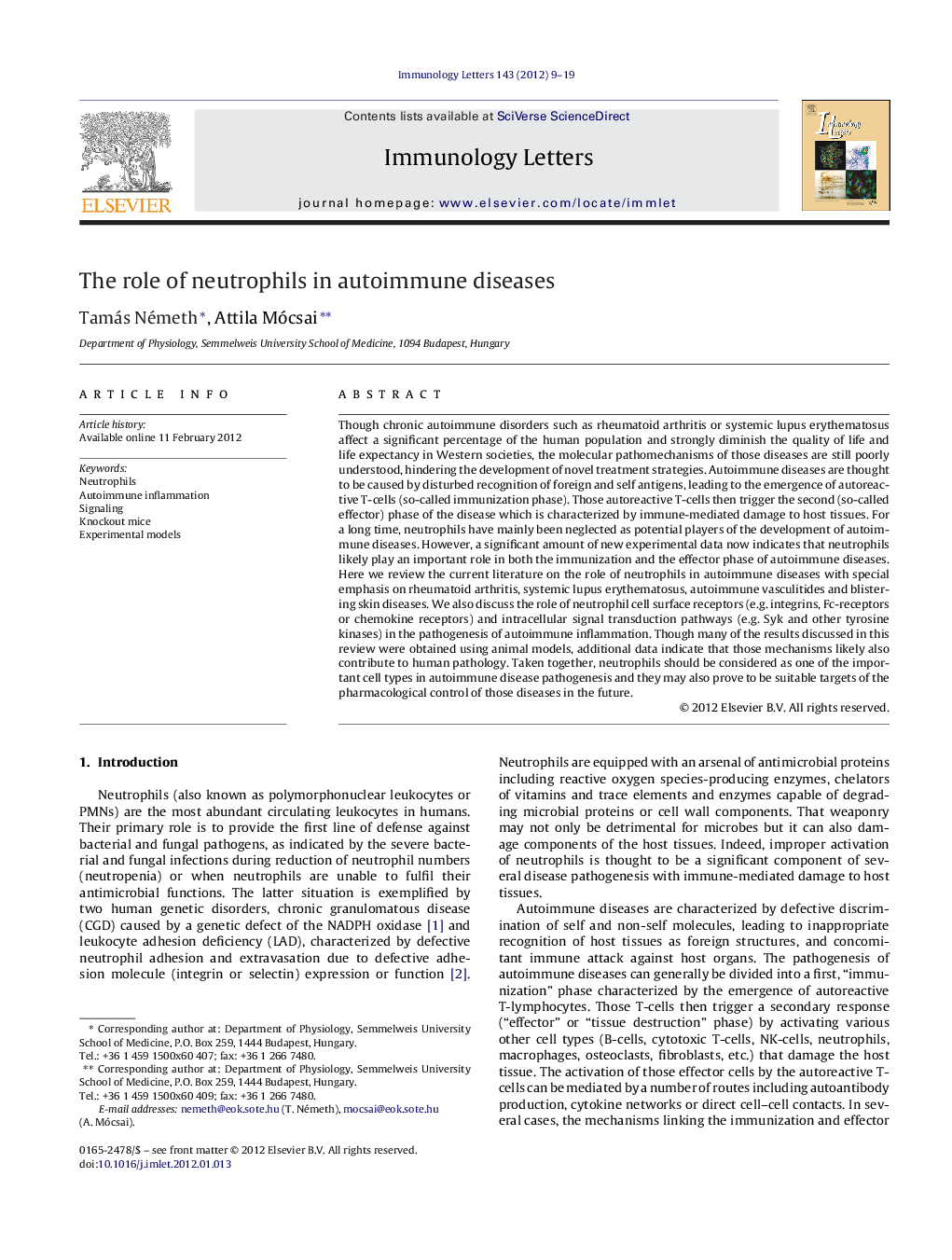| کد مقاله | کد نشریه | سال انتشار | مقاله انگلیسی | نسخه تمام متن |
|---|---|---|---|---|
| 3355641 | 1217196 | 2012 | 11 صفحه PDF | دانلود رایگان |

Though chronic autoimmune disorders such as rheumatoid arthritis or systemic lupus erythematosus affect a significant percentage of the human population and strongly diminish the quality of life and life expectancy in Western societies, the molecular pathomechanisms of those diseases are still poorly understood, hindering the development of novel treatment strategies. Autoimmune diseases are thought to be caused by disturbed recognition of foreign and self antigens, leading to the emergence of autoreactive T-cells (so-called immunization phase). Those autoreactive T-cells then trigger the second (so-called effector) phase of the disease which is characterized by immune-mediated damage to host tissues. For a long time, neutrophils have mainly been neglected as potential players of the development of autoimmune diseases. However, a significant amount of new experimental data now indicates that neutrophils likely play an important role in both the immunization and the effector phase of autoimmune diseases. Here we review the current literature on the role of neutrophils in autoimmune diseases with special emphasis on rheumatoid arthritis, systemic lupus erythematosus, autoimmune vasculitides and blistering skin diseases. We also discuss the role of neutrophil cell surface receptors (e.g. integrins, Fc-receptors or chemokine receptors) and intracellular signal transduction pathways (e.g. Syk and other tyrosine kinases) in the pathogenesis of autoimmune inflammation. Though many of the results discussed in this review were obtained using animal models, additional data indicate that those mechanisms likely also contribute to human pathology. Taken together, neutrophils should be considered as one of the important cell types in autoimmune disease pathogenesis and they may also prove to be suitable targets of the pharmacological control of those diseases in the future.
► Neutrophils are present at high numbers at some autoimmune lesional sites.
► We review recent advances on the role of neutrophils in autoimmune pathogenesis.
► Animal disease models are shown as useful tools in understanding neutrophil biology.
► Neutrophil cell surface receptors and intracellular signaling molecules participate in autoimmune diseases.
► Neutrophils may be potential targets of pharmacological intervention.
Journal: Immunology Letters - Volume 143, Issue 1, 30 March 2012, Pages 9–19